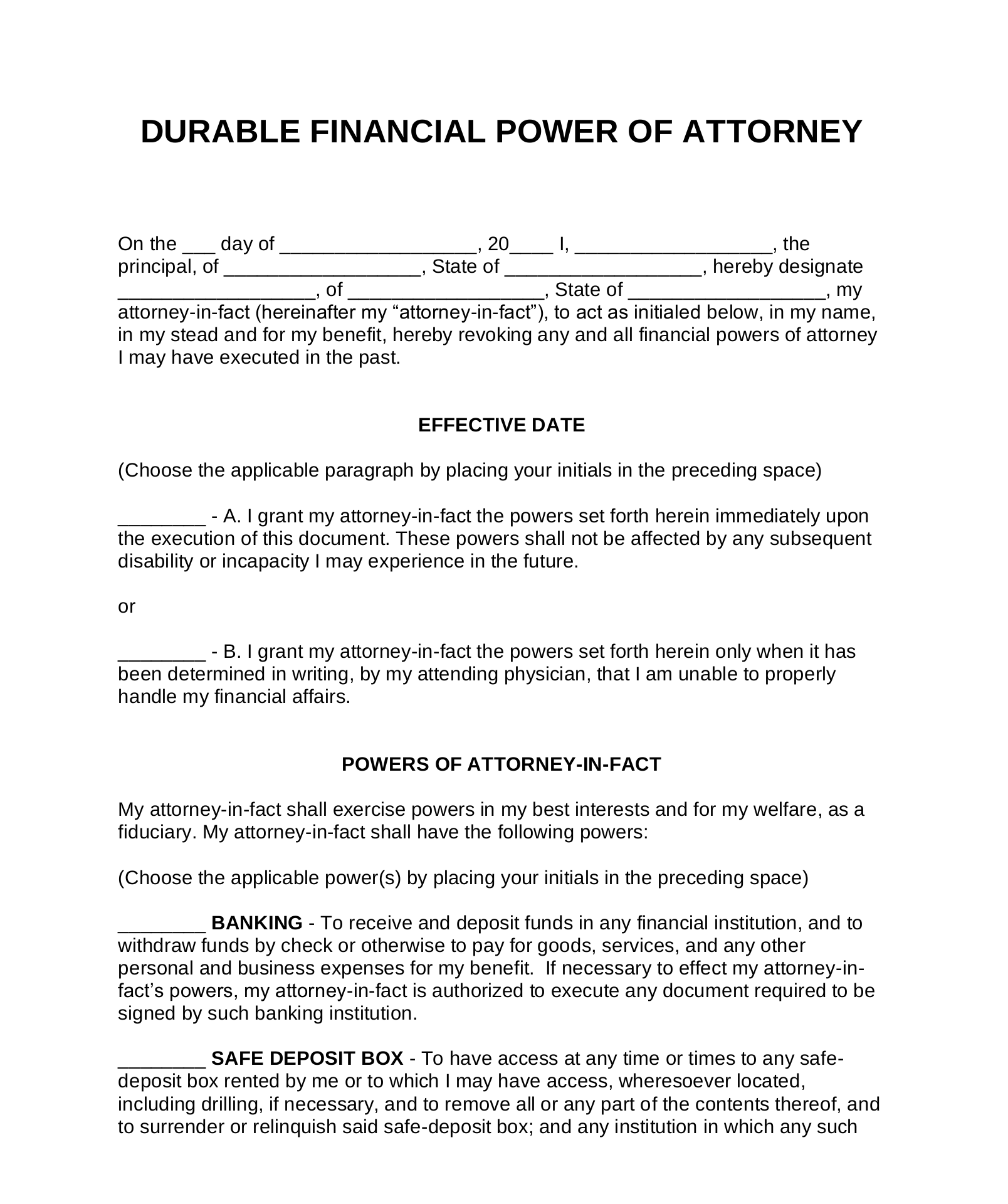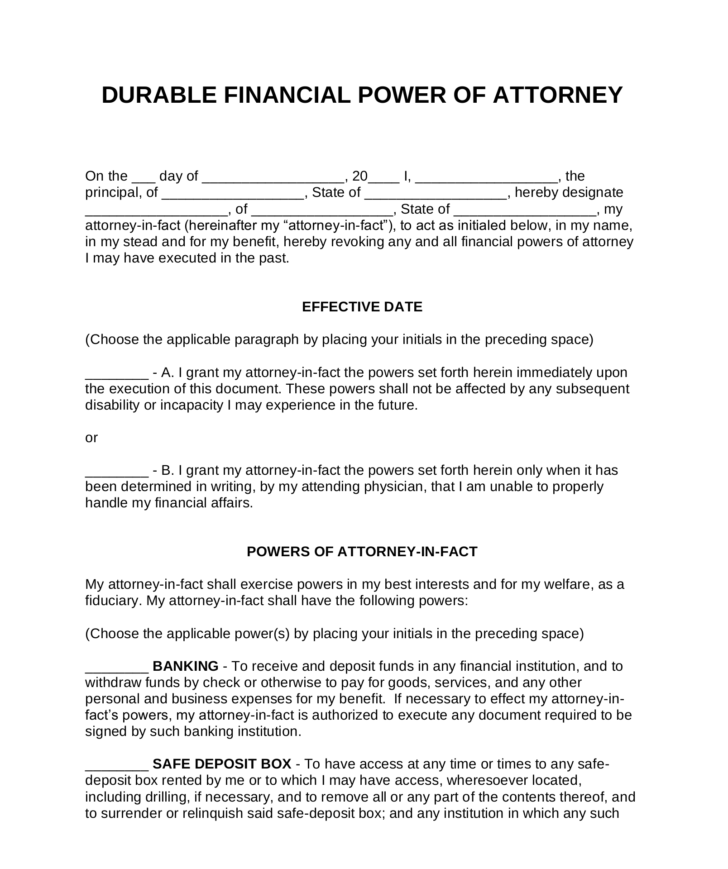POWER OF ATTORNEY FORMS MAY NOT BE FOREIGN TO YOUR EARS, BUT STILL, FOR SOME PEOPLE, THEY DON’T KNOW WHAT IT MEANS. THE ARTICLE BELOW WILL TELL YOU ABOUT IT.
Ever wondered what does the power of attorney forms mean? You are not the only one. Since this is a document that’s involved in the legal area, it is no wonder that many people are confused about it. Luckily, you are just a few clicks away from understanding it better, and it is a good thing that you’re here already. This article will show you what this document is used for, few aspects that make it a legal document, as well as other related information about the document itself. Take your jotter and pen; be ready to learn something new.

What is Power of Attorney Forms?
The power of attorney form, which is often be abbreviated as POA, is a legal document that provides someone the capability to act on the signee’s behalf. It simply acts as a document that states about the signee’s authorization which is given to the person whose name is stated on the form in order to do a specific thing.
Sometimes, this form may have its time limitation. It means there is this valid interval in which the power of attorney forms has its ‘power’. If the limit has passed, it simply means that the form will no longer serve as a valid paper to give someone the capability to act on someone’s behalf.
Why Do You Need to Set Power of Attorney Forms?
We don’t really know what will happen with our life, even for the next second. In case you become incapacitated, either physically or mentally, you will need someone to take care of your business. It is quite similar to a will, but the power of attorney form only applies when you as the signee are still alive.
To sum up, this form will be used to authorize a specific party to make the decision for a specific purpose on your behalf. Not only the form is used at the time the signer becomes incapacitated, but it will also be valid if the signee cannot be present to sign the important documents, transactions, or other legal matters.
What are Four Types of Power of Attorney Form?
There are four types of POA that can be applied in our daily lives. These types are as follows:
1. General Power Of Attorney
This form will give your agent the power to act on various things on your behalf. Let it be making business, financial, legal, or even real estate decisions, your agent can do it if they got your authorization through this form. This may become your excellent tool for authorizing that person for cases like mentioned below:
- Paying utility bills
- Purchasing a property or selling it
- Dealing with banking transactions
- Signing a contract
For this type of POA, usually, the signee provides a short period of time for the form to be valid. Otherwise, it may risk the authorization to be used for unwanted reasons. Unless the signee wants it, it is better to set a valid time for the general power of attorney form.
2. Medical Power Of Attorney
Just like its name implies, a medical form allows you to get a medical agent to make medical decisions for you – given that you are incapable to make the decision yourself. What things are covered with this type of form? Well, there are many:
- Releasing your medical records for a specific purpose,
- Donating organ
- Surgical consent
- Medical treatment consent
- Choosing health care facility, and
- Providing nutrition and artificial hydration
- DNR (Do Not Resuscitate) procedure
Unlike the previous form, a medical POA will be effective immediately the time you sign it, yet it can only be implemented if you are declared to be incompetent mentally by your physician(s). So, it can be inferred that this does not have a limit date like the previous one.
3. Non-Durable And Durable Power Of Attorney
- Durable POA
Also popular with its abbreviation DPOA, durable power of attorney forms are POA which has the power to act like general POA but has no certain date limit. So, when will the POA become expired? The POA will expire automatically when you die. That being said, the durable POA will still be effective when you are incapacitated.
- Non-Durable POA
The difference between durable and non-durable POA is that non-durable POA becomes expired at the time you are pronounced as incapacitated or dead. So, if you grant a non-durable POA for your agent, if you fall into a coma, the form will no longer be valid.
4. Limited/Special Power Of Attorney Form
This form can be used interchangeably with general power of attorney forms; however, the form itself is only effective for one specific task, one specific agent, and within a specific interval of time. The letter will generally be expired at the moment the task has been completed fully.
What Happens If You Do Not Have POA?
The short answer for that question is: you will not own a legally authorized party to help you deal with things on your behalf, even your loved ones like your spouse or children. So, it is important that you have your valid power of attorney at the time you need it. Hence, knowing what kind of form that you should make is important to acknowledge.
What are the Components of Power of Attorney?
If you are planning to make this form, you should know that this document has its own format that makes it distinct from any other kind of document. So, what things are included in the power of attorney forms?
1. People Involved In Making The Form
- The principal (also called the signee), is the person who gives authority to the agent to act on his or her behalf.
- Agent, who is also called as attorney-in-fact, is the person/party that is given the authority to act for the matter stated in the form.
2. Things Included In The Form
- Title. The form should be given a clear title that helps the reader to identify what the POA is used for. For example: “Non-Durable Power of Attorney for Property Purchase Purpose”
- Date. Don’t forget to put the date when the form is signed. Aside from that, you should also include the POA’s effective date if required.
- State the agent and the principal. Make sure to write the full name, ID number, address, and phone number, if possible.
- Mention the powers specifically. Make sure the acts specified in the form are made detailed, including the principal and agent’s name, as well as the effective date.
If you are going to make the power of attorney forms for financial matters, then things that you need to describe is more diverse. Make sure to learn about the matter before making one. Usually, the format of the POA form may differ depending on your state.
How to Make Power of Attorney Form?
You can make it by yourself using these seven easy steps mentioned below:
- First of all, acknowledge the reason why you need to make the power of attorney forms.
- Then, determine what type of document you are going to make.
- Take a moment to review various kinds of power of attorney online.
- Choose the party/person that is reliable to be your agent and ask for their consent.
- Start making the document.
- Sign the document.
- Lastly, save your document in a safe place.
Power of Attorney Forms Printable Downloads
 Loading...
Loading...
 Loading...
Loading...
 Loading...
Loading...
 Loading...
Loading...
Frequently Asked Questions (FAQ) & Answers
Can I Make A Power Of Attorney Myself?
The answer is pretty obvious: you can make it yourself – as mentioned above. As long as the document that you make fulfills the legal requirements.
Does A Lawyer Have To Prepare A Power Of Attorney?
There is no requirement that mentions that the form needs to be prepped by a lawyer. However, if you are going to put an important power to your agent, you may consider preparing it with the help of an attorney.
Do Both Parties Have To Sign A Power Of Attorney?
Most states don’t need the POA to be signed by both parties. Usually, it is only the principal who needs to sign it.
How Much Does It Cost To Prepare A Power Of Attorney?
It depends on whether you involve a lawyer or not. If you need help from a lawyer, then on average it will charge you around $250-$500.
Who Keeps The Original Power Of Attorney Document?
The one who needs to keep the original copy is the principal. But, the attorney needs to know where the original copy is saved so in case the power of attorney becomes effective, the attorney can give copies to the appointed agent(s).
Can A Power Of Attorney Change A Will?
No, typically a POA does not have such power to do that. The will can only be changed by the person who makes the document.
So, that’s the important information you should know about the power of attorney forms, and how to make them. Now, that you’ve known what the document is for, you can make it at ease.
